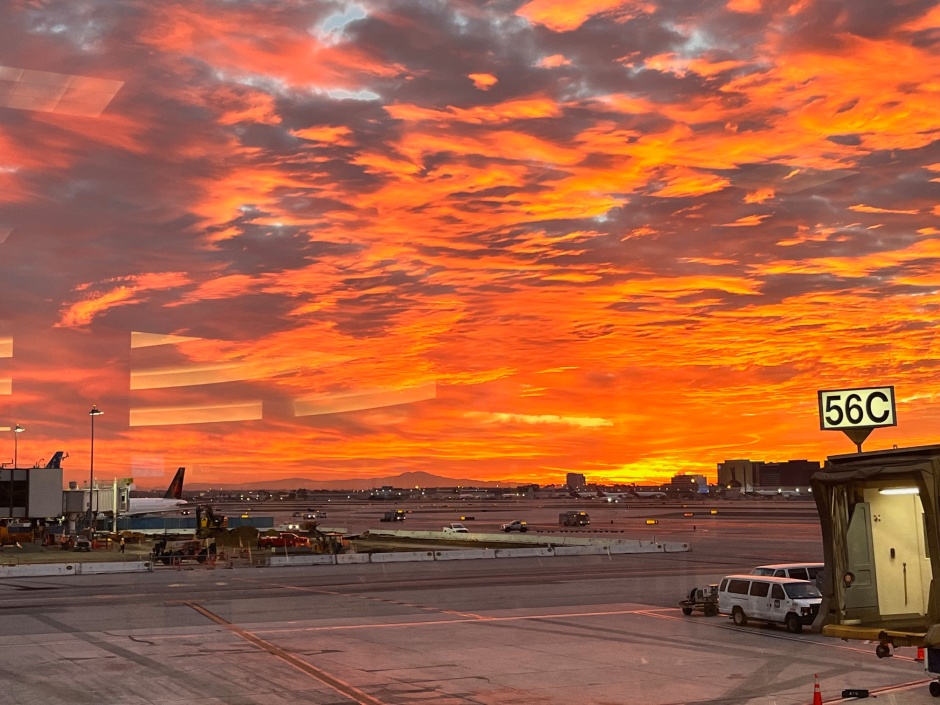Yesterday, my friend Robynn shared a compelling video with me. The video was of Enrique Garcia Naranjo retelling a story about being stopped by border patrol. Before he gets into the actual story, he set the stage of where he was prior to the incident. He was speaking to a group of high school students in Douglas, Arizona, reciting a poem he had written about his life, describing his “barrio, the holiness of tacos, and the unrelenting spirit of Mexican grandmothers.” He describes the students as people between languages and cultures, as people of the border. At the end of his poem, he told them to get out pens, pencils, and paper and gave them a prompt. He asked them to write about “the city within my chest.”
The prompt deeply resonated with me, and I began pondering the physical missing of places, how sometimes it feels like they literally live within our chests. There is a heaviness to missing places and people, a heaviness of homesickness, a burden defying description. The weight of absence moves from our chests upward, constricting our throats, upward again to a burning in our eyes. Tears come unchecked, seemingly out of nowhere. Such is the power of place.
What city is within your chest? What place is within your chest?
Is it a city from your childhood, a place you’ve never been able to return? Is it the place where you first felt the security of belonging and love? Is it a farm where long summer days had you in bare feet, grass tickling your toes as you ate watermelon without a thought to the privilege and burden of belonging? Is it a beach town where you woke to the sound of the ocean crashing on the shore? Is it a town that kept you safe and secure in the knowledge that you held an undefinable “membership” that wasn’t because of anything you did or didn’t do, but just because you existed?
If you were to write about these places, how would you describe them? What would you choose to bring people into your memory of food and grandmothers? Would it be the pure joy of curry and chapatis as you break out in a sweat from the spices? Would you describe the resilience of boarding school people? Would it be about the grandmother who took your hand when you were young, and prayed you through life when you were older? Would it be about the rushing glory of rivers and forests and the massive snow-capped mountains in the distance, or the crowded spaces of public buses as you join a community of escapees from the cold winter days in a city, the bus driver smiling in empathy as you hop on? Would it be a park where you watch the seasons come and go? Would it be about mountains calling you and long hikes on crisp spring days?
On Sunday afternoons, I carry places and people within my chest. The morning’s liturgical joy gives way to a deep melancholy, particularly when the sky is grey. Staying fully present and focused is a struggle and it is easy to have my mind travel to places far away where I hung my heart, places that are now carried within my chest. My mind goes to Cairo and Karachi, Erbil and Ranya. I carry the sights and sounds of places that will never leave me, the call to prayer, the street vendors selling molasses and bananas on the road below my fourth-floor apartment, the smell of bread baking at dusk, the sunset’s burnished gold and deep pink- benedictions to my days, and the people still there that continue to mark these places on my heart.
In truth, I’ve come to be grateful for these times. They are reminders of the richness of my life, reminders of the gifts that these cities and places gave me. As I surrender to the melancholy, I find comfort. Surrender comes easier with chocolate and a cup of strong, sweet, milky tea. Revisiting memories through photographs that remind me of these lives I lived before are also gifts to accepting the pensive sadness of missing. I’ve learned that surrender can make me stronger, resolute in my desire to make each place count and committed to living well in the present.
To all of us border people, living between the here and there, the now and not yet, the familiar and the foreign, may we carry our places within our hearts and be the richer for it.
“Always border people – caught between citizen and alien, silence and disruption, here and there.”
Enrique Garcia Naranjo


























